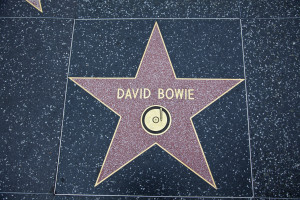David Bowie’s Genius Pushed Bounds of Music and Finance
To those of us of a certain age, David Bowie will always be associated with standing on the back of a beer-soaked sofa at many a college party, playing our tennis-racket guitars — it was a more tactile age — to “Suffragette City” from his album, “The Rise and Fall of Ziggy Stardust and the Spiders from Mars.” Bowie was cutting edge before we even knew what that meant. We just saw him as a weird, sort of other-worldly singer who made great music.
But the now-deceased artistic chameleon was not just cutting edge in his music. He was cutting edge in finance, as well.
It was during my tenure with SNL Financial as editor of Specialty Lender, a now-shuttered publication that tracked subprime lenders and the financing techniques they used to leverage their off-balance sheet portfolios to the hilt, which should have provided a clue to bank regulators a decade later to what was coming… But I digress.
Remember Bowie Bonds?
It was during that period of the mid-1990s that we all came across the term, “Bowie Bonds,” for the first time. With the aid of some advisers, as this article in The Wall Street Journal describes, he was able to see the benefits of trying something different, in this case to monetize his music through the use of asset-backed securitization. No doubt, most are aware of the technique used to do it, but for those unaware, he sold the future royalties from his existing music catalog to bondholders in return for their projected present value. The deal didn’t include royalties on music he would create in the future, as ABS investors in those days were much more tactile in their own right than they were to become in the new millennium.
The financing structure Bowie helped develop was applied quickly elsewhere in the entertainment world. Frank Thomas, a former slugger with the Chicago White Sox, was in his mid-20s when he sold bonds on his future earnings with the Southsiders (that’s the White Sox for you non-Illinoisans). I recall the bonds were sold in either 1997 or 1998, after which Thomas played productively for another decade. Still, it wasn’t a bad deal for the future Hall of Famer (inducted in 2014).
The structure gave innovators the idea to spread other risks broadly, too. So-called “Cat Bonds,” short for catastrophe bonds, were created as a way to let investors, institutional and personal, take their chances in the insurance market for catastrophes such as hurricanes and earthquakes.
Bowie-type bonds aren’t so much heard of these days in the entertainment sector. One possible reason is that there aren’t many musical talents like himself, aside from perhaps U2, who have had the ability to regularly remake themselves in ways that can sustain a high level of fame over decades. Likewise, such contracts likely are done on a bilateral basis, out of the public eye with private entities to avoid perceptions that the artist has lost his or her edge. Sports teams, too, likely wouldn’t be pleased if their newly acquired, highly paid stars began their contract tenure with their new teams by hedging their future performance — bad for incentives to play at their best, no doubt.
Still I thought it important to note at this time the mark David Bowie made not only in music but in high finance. It was just another innovative, other-worldly idea from the guy whose alter egos were Major Tom and Ziggy Stardust.
If you liked this post, consider subscribing to Market Integrity Insights.
Photo credit: iStockphoto.com/GreenPimp


Bowie’s monetization of his music and “spreading the risk broadly”—fascinating story. This is ground control to Major Jim: Well done!
This is really interesting, had no idea that Bowie had created and sold “Bowie Bonds”. I guess one of the reasons he did this was to buy back the rights to some of his early albums from a former manager. We hear so many stories about musicians getting ripped off, it’s nice to hear about some of the success stories.
The decline in album sales over the last decade has likely reduced the effectiveness of this technique, but once again the man was ahead of his time.
He was such an innovator in so many different ways. RIP David Bowie.